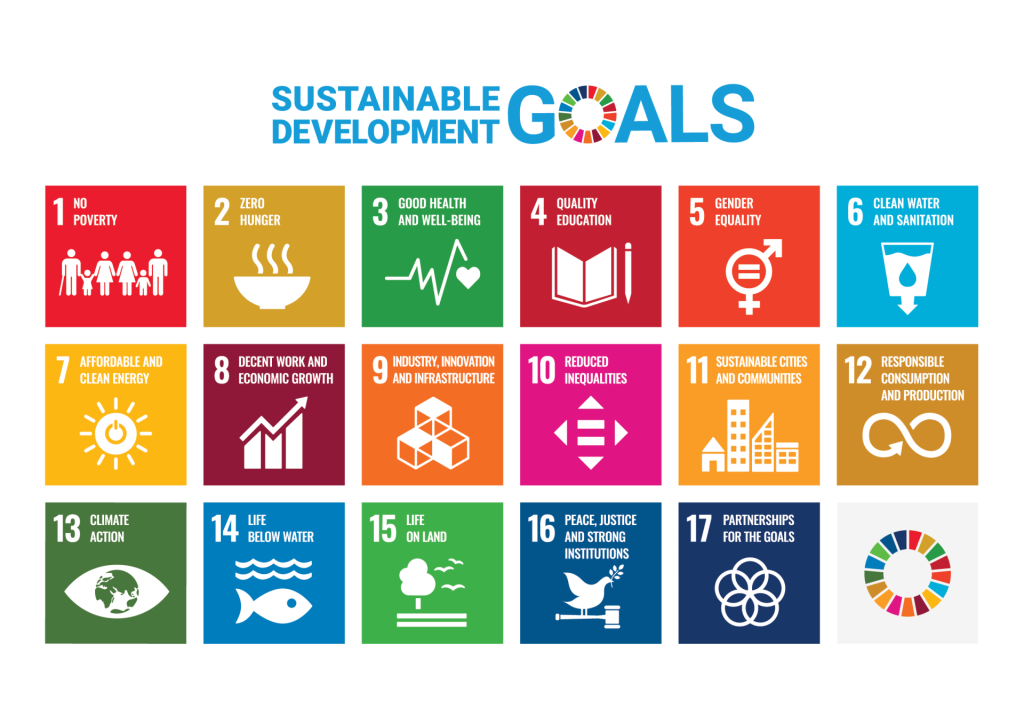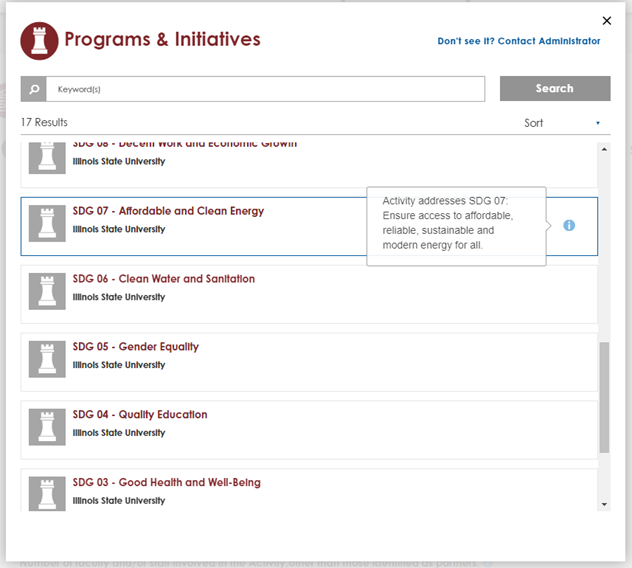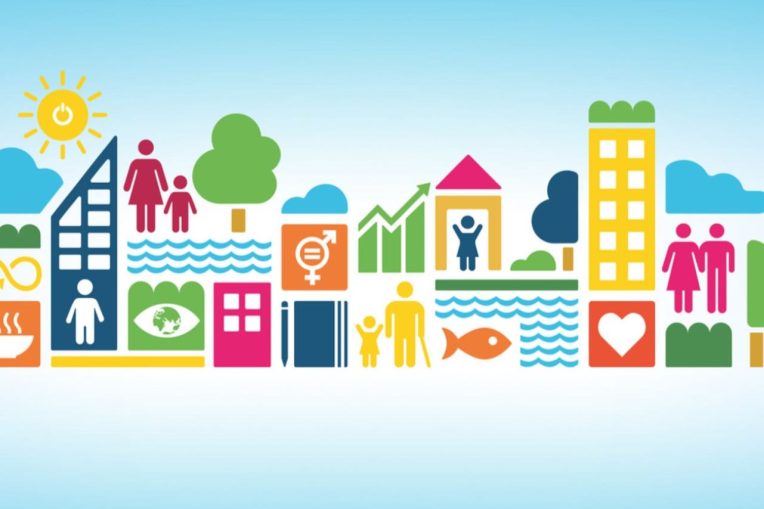The Office of Sustainability, Center for Civic Engagement, and Office of International Engagement are exploring how Illinois State University addresses and contributes to the United Nations Sustainable Development Goals. The Sustainable Development Goals (SDGs) are a set of 17 broad and interconnected goals that will help tackle the world’s most pressing challenges by 2030. These large-scale goals include eliminating poverty, creating economic prosperity, ensuring social inclusion, fostering environmental sustainability, and promoting peace and good governance to all countries. This demonstrates the wide range of complex social, economic, and environmental challenges encompassed by the SDGs, and meeting these goals requires the integration of knowledge and expertise from multiple disciplines. Universities, like Illinois State, are uniquely positioned to influence the achievement of the SDGs, in that the very nature of higher education fosters the interdisciplinary connections that are essential to achieving the SDGs.

“Illinois State can serve as a catalyst for pursuing some of these goals through our already collaborative and interdisciplinary environment,” said Elisabeth Reed, director of the Office of Sustainability. “We must prepare our future leaders with the knowledge and skills required to take on some of these global challenges.”
The Center for Civic Engagement and Office of Sustainability staff began the discussion of the SDGs with Collaboratory, as Collaboratory was conducting research on how Collaboratory activities align with the SDGs. Additionally, the Association for the Advancement of Sustainability in Higher Education (AASHE) and the American Council on Education, which sponsors the Carnegie Elective Classification for Community Engagement, both encouraged universities to align campus activities and community engagement activities to the SDGs for tracking and monitoring of sustainability efforts. These recommendations and discussions led to the exploration of how the campus can demonstrate its alignment with and contributions toward the SDGs as a globally engaged institution.
Given the global nature of the SDGs, this collaboration expanded to include the Office of International Engagement.
“We live in a global society,” said Dr. Roopa Rawjee, director of the Office of International Engagement. “By engaging in these discussions of the SDGs we are learning about the great work of our campus and partners while providing a global perspective for our students.”
Staff in the Office of International Engagement, Office of Sustainability, and Center for Civic Engagement are currently exploring how Illinois State’s study abroad and study away programs intersect with the SDGs and community engagement.
The Office of Sustainability staff have already coded course descriptions in the University’s course catalog that align with any of the 17 SDGs, identified research published by Illinois State scholars in the Web of Science that aligns with the SDGs and worked with Collaboratory to code the community engagement and public service activities within the University’s database to the SDGs. Findings from these efforts will be released at the International Seminar Series scheduled for February 28, 2024.

By the end of February 2024, Collaboratory users will notice their existing activities have been assigned one or more SDGs depending on the coding. Collaboratory users will also have the option to select one or more SDGs that align with their community engagement or public service activity.
Dr. Katy Strzepek, director of the Center for Civic Engagement, explained that the core purpose of the SDGs aligns with the mission of the center: working toward a more just and equitable world.
“The Center for Civic Engagement is thrilled to partner with the Office of Sustainability and the Office of International Engagement to utilize Collaboratory to highlight the University’s commitment creating interdisciplinary partnerships to address some of the world’s most complex problems. We are grateful to collaborate with campus partners to create a robust assessment of the University’s efforts to embrace our responsibility as a public institution to contribute to the health and well-being of our planet and all who share it,” Strzepek said.
By aligning campus activities to the SDGs, the institution is provided with a framework to demonstrate its commitment to contribute to global and local well-being to internal and external stakeholders. Including the SDGs in course work, research, community engagement and public service, and institutional governance and operations communicates a globally aware campus that is a champion for sustainable development.


